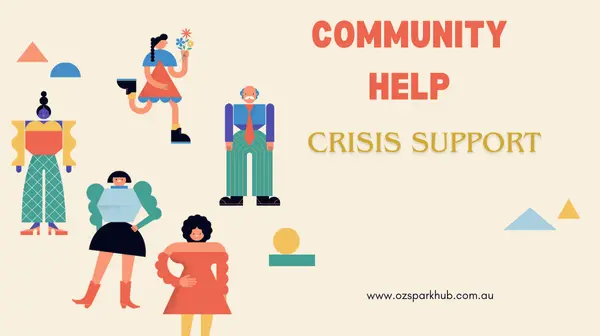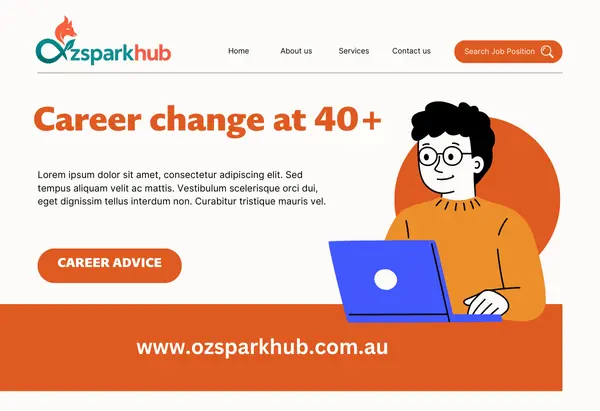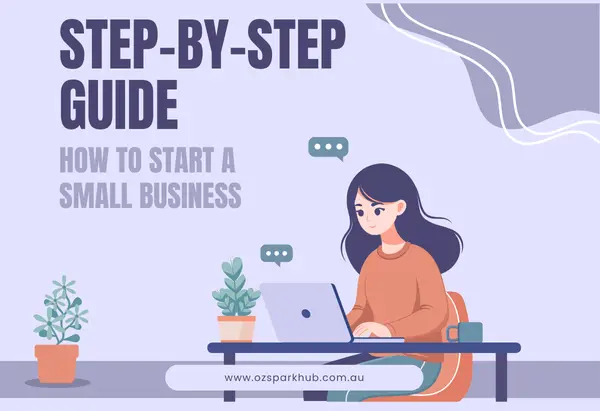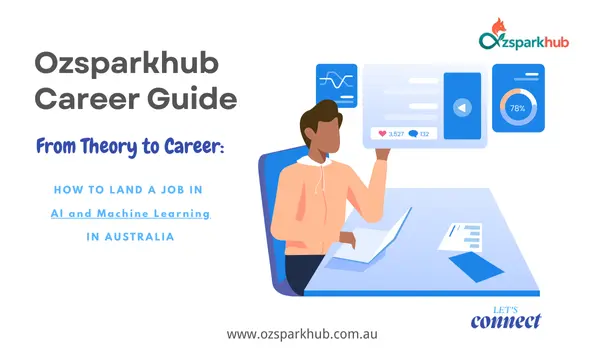Domestic Violence Escape Plan: Complete Safety Guide for Australia 2025
🆘 Domestic Violence Escape Plan: Complete Safety Guide for Australia 2025
🚨 If you're in immediate danger, call 000 now. If you can't speak safely, stay on the line - they'll send help.
If you need to quickly leave this page, click here to go to a safe website.
📞 IMMEDIATE HELP NUMBERS - SAVE THESE NOW
24/7 Emergency Support
- 000 - Police, Ambulance (immediate danger)
- 1800RESPECT: 1800 737 732 - 24/7 domestic violence support
- Women's Crisis Line: 1800 811 811 (NSW)
- Men's Referral Service: 1300 766 491 - Support for male victims
Text Support (If You Can't Call Safely)
- Text 0458 166 166 (1800RESPECT text service)
- Crisis Text Line: Text HELLO to 741741
🛡️ SAFETY PLANNING: YOUR ESCAPE PLAN
Phase 1: Preparing While Still at Home
1. Create a Safety Code with Trusted People
- Choose a code word that means "call police immediately"
- Share with family, friends, neighbours, coworkers
- Example: "How's your mother's garden?" = send help now
- Have different codes for different levels of danger
2. Important Documents to Prepare
Keep copies in a safe place (friend's house, work locker, bank deposit box):
For You:
- Driver's licence or passport
- Medicare card
- Birth certificate
- Bank cards and statements
- Centrelink card/paperwork
- Any visas or citizenship documents
- Medical records and prescriptions
- Insurance policies
- Will and power of attorney
- Rental agreement or mortgage documents
For Children:
- Birth certificates
- Medicare cards
- School records
- Immunisation records
- Any court orders about custody
- Photos of children (recent)
Financial:
- Bank account details
- Superannuation details
- Tax returns
- Income statements
- Asset documentation
3. Emergency Money Plan
- Open a bank account at a different bank
- Save small amounts of cash when possible
- Ask trusted friends/family to hold money for you
- Know your Centrelink entitlements
- Research emergency financial relief options
4. Emergency Bag (Hide at Work/Friend's House)
Essential Items:
- Change of clothes for you and children
- Toiletries and medications
- Mobile phone and charger
- Cash and bank cards
- Copies of important documents
- Children's comfort items (small toy, blanket)
- Keys (car, house, work)
- Contact list of support services
Phase 2: When You Need to Leave Immediately
1. If Violence is Escalating
- Call 000 if safe to do so
- Get yourself and children to safety first
- Don't worry about belongings - they can be replaced
- Go to police station, hospital, or fire station
- Call 1800RESPECT for immediate support
2. Safe Places to Go
Immediate Options:
- Police station (open 24/7)
- Hospital emergency department
- Fire station
- Women's refuge or shelter
- Trusted friend or family member
- Motel (if you have money)
Important: Don't go anywhere the abuser might look for you first.
🏠 EMERGENCY ACCOMMODATION BY STATE
NSW
Women's Domestic Violence Court Advocacy Service
- Phone: 1800 810 784
- Refuges: Available across NSW
- Emergency Accommodation: Through Link2home 1800 152 152
Services Available:
- Crisis accommodation up to 12 weeks
- Support with Centrelink applications
- Legal advocacy
- Children's programs
VIC
Safe Steps Family Violence Response Centre
- Phone: 1800 015 188 (24/7)
- Crisis Accommodation: Immediate placement available
- Men's Support: 1800 065 973
What You Get:
- Secure accommodation
- Safety planning support
- Financial assistance applications
- Court support
QLD
DV Connect
- Women's Line: 1800 811 811
- Men's Line: 1800 600 636
- Emergency Accommodation: Available statewide
Housing Support:
- Crisis housing up to 6 months
- Help finding permanent housing
- Bond assistance
- Utility connections
WA
Women's Council Domestic Violence Helpline
- Phone: 9420 7264 (24/7)
- Crisis Care: 9223 1111
- Men's Support: 9272 1488
Accommodation Services:
- Refuge accommodation
- Transitional housing
- Support with rental applications
SA
Domestic Violence Crisis Line
- Phone: 1800 800 098 (24/7)
- Women's Safety Services SA: 1300 782 200
Housing Options:
- Crisis accommodation
- Medium-term housing
- Private rental support
- Public housing priority listing
TAS
Family Violence Counselling & Support Service
- North: 1800 608 122
- South: 1800 633 937
Accommodation:
- Crisis refuges
- Safe houses
- Transitional housing programs
ACT
Domestic Violence Crisis Service
- Phone: 6280 0900 (24/7)
- Crisis Accommodation: Available
NT
Dawn House Domestic Violence Service
- Darwin: 8945 1388
- Alice Springs: 8951 4251
- Crisis Line: 1800 737 732
⚖️ LEGAL PROTECTION: RESTRAINING ORDERS
How to Get Protection Orders
1. Domestic Violence Orders (DVOs)
What They Do:
- Stop the abuser from contacting or approaching you
- Remove them from shared homes
- Prevent them from coming to your work/children's school
- Stop them from damaging your property
How to Apply:
- At Court: Go to your local Magistrates Court
- Through Police: They can apply on your behalf
- Online: Some states have online applications
- Through Lawyer: Legal aid can help
2. What Evidence Helps
- Photos of injuries
- Medical reports
- Police reports
- Witness statements
- Threatening text messages/emails
- Audio recordings (check state laws)
3. Emergency Orders (Available 24/7)
- Can be granted immediately by magistrate
- Police can help you get emergency orders
- Don't need the abuser to be present
- Valid until court hearing (usually within 28 days)
Legal Aid Support by State
NSW Legal Aid: 1300 888 529
Victoria Legal Aid: 9269 0120
Legal Aid QLD: 1300 651 188
Legal Aid WA: 1300 650 579
Legal Services SA: 1300 366 424
Legal Aid TAS: 1300 366 611
Legal Aid ACT: 1300 654 314
NT Legal Aid: 1800 019 343
👶 PROTECTING YOUR CHILDREN
Child Safety During Domestic Violence
1. Safety Planning for Children
- Teach them to call 000 in emergencies
- Identify safe rooms in the house
- Plan where children should go if violence starts
- Have a code word that means "get help"
- Keep emergency contact list for children
2. School Safety
- Inform school about protection orders
- Provide photo of abuser to school
- Authorise only specific people to collect children
- Ask school not to give out your contact details
- Consider changing schools if necessary
3. Child Support and Family Court
Family Court Orders:
- Can prevent abuser from seeing children unsupervised
- Can order supervised visits only
- Can relocate with children (with court approval)
Child Support:
- You can get child support even with restraining orders
- Apply through Services Australia
- May be collected differently for safety reasons
Children's Support Services
Kids Helpline: 1800 55 1800 (free counselling for children)
Child Protection Services: Each state has 24/7 reporting lines
Family Relationship Centres: 1800 050 321
💰 EMERGENCY FINANCIAL SUPPORT
Centrelink Crisis Payments
1. Crisis Payment for Domestic Violence
You May Be Eligible If:
- You've left your home due to domestic violence
- You're in severe financial hardship
- You meet residency requirements
How Much:
- Usually 1 week's worth of your normal payment
- Can be paid while waiting for other payments to start
How to Apply:
- Call Centrelink: 132 717
- Apply online at myGov.gov.au
- Visit Centrelink office with supporting evidence
Evidence Needed:
- Police report
- Medical certificate
- Statutory declaration
- Court documents
- Letter from refuge/support service
2. Other Centrelink Support
- Family Tax Benefit: If you have children
- Rent Assistance: Help with rental costs
- JobSeeker Payment: If unemployed
- Parenting Payment: If single parent
- Emergency Advance: Loan against future payments
Emergency Relief Services
Immediate Financial Help
Salvation Army: 13 SALVOS (13 72 58)
- Food vouchers
- Clothing
- Household items
- Utility bill assistance
St Vincent de Paul Society
- Emergency relief
- Furniture packages
- Bill assistance
- Back-to-school supplies
Red Cross: Emergency assistance programs
State Emergency Relief
NSW: Community Services Emergency Relief
VIC: Emergency Relief Victoria
QLD: Emergency Relief Services
WA: Financial Counselling & Emergency Relief
SA: Emergency Relief Association
TAS: Anglicare Emergency Relief
ACT: ACT Emergency Relief Network
NT: Territory Families Emergency Relief
Banking and Financial Security
1. Protecting Your Finances
- Change all passwords and PINs
- Cancel shared credit cards
- Open new bank accounts at different banks
- Redirect your mail to safe address
- Cancel any automatic payments to shared accounts
2. Financial Counselling
National Debt Helpline: 1800 007 007
- Free financial counselling
- Help with debts and budgeting
- Assistance with bankruptcy if needed
🏥 HEALTH AND MEDICAL SUPPORT
Medical Documentation
1. Documenting Injuries
When Visiting Doctor/Hospital:
- Ask for detailed medical records
- Request photos of injuries be included
- Get copies of all reports
- Ask doctor to note if injuries consistent with domestic violence
Important: Even if you don't want to report to police now, medical records can be crucial evidence later.
2. Mental Health Support
Beyond Blue: 1300 22 4636
Lifeline: 13 11 14
SANE Australia: 1800 18 7263
Mental Health Care Plans:
- Ask GP for mental health care plan
- Provides subsidised psychology sessions
- Can get immediate referrals in crisis
Women's Health Services
Women's Health Centres (each capital city)
- Specialist domestic violence counsellors
- Medical services
- Mental health support
- Legal referrals
👥 ONGOING SUPPORT SERVICES
Specialist Domestic Violence Services
1. Women's Legal Services
National: Available in each state
- Free legal advice
- Court support
- Family law assistance
- Immigration support for overseas-born women
2. Multicultural Support
Immigrant Women's Support Service
- Culturally appropriate support
- Interpreters available
- Understanding of visa implications
- Support for women with limited English
Aboriginal Family Violence Services
- Culturally appropriate services
- Family violence prevention programs
- Healing programs
3. LGBTI+ Support
ACON: 9206 2000 (NSW)
Thorne Harbour Health: 9865 6700 (VIC)
QLife: 1800 184 527 (National)
Counselling and Recovery Support
1. Trauma Counselling
- EMDR therapy for trauma
- Cognitive behavioural therapy
- Group therapy programs
- Family therapy if appropriate
2. Parenting Support
- Programs for children affected by domestic violence
- Parenting after domestic violence courses
- Family support workers
3. Practical Support
- Driving lessons (many services provide free lessons)
- Job search assistance
- Computer skills training
- English classes if needed
📱 TECHNOLOGY SAFETY
Phone and Internet Safety
1. Secure Communication
- Change all passwords
- Set up new email address
- Use private browsing/incognito mode
- Clear browser history
- Turn off location sharing
2. Mobile Phone Safety
- Check for tracking apps
- Consider getting new phone/number
- Don't use shared accounts (Apple ID, Google)
- Be careful with social media
- Turn off location services
3. Safe Online Research
- Use library or friend's computer
- Use private browsing
- Clear search history
- Have cover story ready if questioned
Safety Apps
Emergency Plus: Helps emergency services find you
bSafe: Personal alarm with emergency contacts
Hollie Guard: Records and sends evidence to contacts
🏃♀️ LEAVING SAFELY: STEP-BY-STEP
The Day You Leave
1. Choose the Right Time
- When abuser is at work or away
- When children are at school (if taking them)
- When you have transportation arranged
- When your support person is available
2. Quick Exit Checklist
- ✅ Emergency bag (pre-packed at safe location)
- ✅ Important documents (copies)
- ✅ Cash and cards
- ✅ Phone charger
- ✅ Children (if safe to take them)
- ✅ Pets (if possible)
- ✅ Medication
3. First 24 Hours
- Get to safe location
- Call support services
- Apply for protection order
- Contact Centrelink
- Inform children's school
- See doctor if injured
- Contact bank about finances
After You've Left
1. First Week
- ✅ Meet with domestic violence counsellor
- ✅ Apply for crisis accommodation
- ✅ Register for Centrelink benefits
- ✅ Find legal representation
- ✅ Enrol children in new school if needed
- ✅ Register with local GP
- ✅ Apply for emergency relief
2. First Month
- ✅ Attend all court hearings
- ✅ Look for medium-term housing
- ✅ Start trauma counselling
- ✅ Apply for jobs if able
- ✅ Connect with support groups
- ✅ Establish new routines
⚠️ IMPORTANT SAFETY WARNINGS
Leaving is the Most Dangerous Time
- Risk of violence increases when leaving
- Plan carefully and get professional help
- Don't leave alone if possible
- Trust your instincts about timing
Technology Risks
- Abusers may track phones and computers
- Be careful about social media posts
- Don't share your location online
- Consider changing all passwords
Financial Abuse Recovery
- Rebuilding credit can take time
- Joint debts may still be your responsibility
- Keep records of all expenses related to leaving
- Some debts caused by financial abuse may be disputed
🤝 SUPPORTING SOMEONE LEAVING DOMESTIC VIOLENCE
How to Help a Friend or Family Member
1. Believe and Support
- Believe their story
- Don't judge their choices
- Let them make their own decisions
- Offer practical help
2. Safety for Helpers
- Don't confront the abuser
- Keep information confidential
- Have your own safety plan
- Know when to call police
3. Practical Ways to Help
- Provide safe storage for documents/emergency bag
- Help with research and phone calls
- Provide transport when needed
- Look after children during appointments
- Offer your address for mail redirection
📞 QUICK REFERENCE: EMERGENCY NUMBERS
Save these in your phone under "Emergency Help":
- 000 - Police/Ambulance (immediate danger)
- 1800RESPECT: 1800 737 732 - 24/7 domestic violence support
- Lifeline: 13 11 14 - Crisis support
- Centrelink: 132 717 - Emergency financial help
- Legal Aid: [Your state number from list above]
- Local Police Station: [Look up your local station]
- Women's Refuge: [Contact 1800RESPECT for local numbers]
💪 REMEMBER: YOU ARE STRONG
You Are Not Alone
- 1 in 6 Australian women experience physical or sexual violence from a current or former partner
- Domestic violence affects people of all backgrounds
- Help is available and recovery is possible
- You deserve to live free from fear and violence
You Are Not to Blame
- Nothing you did caused the abuse
- You are not responsible for the abuser's behaviour
- You deserve to be treated with respect and kindness
- It's not your job to fix or change the abuser
You Deserve Help
- You deserve to be safe
- You deserve to be believed
- Your children deserve to grow up in a safe home
- There are people trained to help you
🔄 WHAT TO DO RIGHT NOW
If you're currently experiencing domestic violence:
Today:
- ✅ Save these emergency numbers in your phone
- ✅ Start thinking about your safety plan
- ✅ Identify one trusted person you can talk to
- ✅ Call 1800RESPECT when it's safe to talk
This Week:
- ✅ Start collecting copies of important documents
- ✅ Research services in your area
- ✅ Think about where you could stay safely
- ✅ Consider opening your own bank account
When You're Ready:
- ✅ Contact domestic violence service for professional help
- ✅ Develop detailed safety plan with counsellor
- ✅ Apply for protection order if needed
- ✅ Take steps to leave when it's safest to do so
Remember: Leaving domestic violence is a process, not a single event. It's okay to take time to plan and prepare. Your safety is the most important thing.
Last Updated: August 28, 2025
Service Information Last Verified: August 2025
This guide provides general information only. Every domestic violence situation is unique. Please contact professional services for personalised safety planning and support.
If you need to quickly leave this page, click here.
Domestic Violence Escape Plan: Complete Safety Guide for Australia 2025
https://www.ozsparkhub.com.au/community-help-Domestic-Violence-Escape-Plan-2025/





